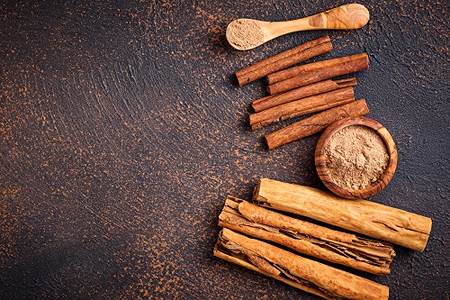
Benefits of cinnamon for oral health
Cinnamon has long been revered for its therapeutic benefits as well as its warming scent and flavor. Cinnamon essential oils are derived from the tree's bark, leaves, fruits, and flowers, and the spice is manufactured of dried bark from several plants in the Cinnamomum genus. Some of the chemicals in cinnamon have antioxidant, anti-inflammatory, and antibacterial capabilities, according to research. This might explain why some individuals throughout history utilized the spice to alleviate toothaches and other diseases.
Cinnamon's antibacterial qualities may aid in the battle against diseases such as bacteria and fungus. Cinnamon has been explored as a potential cure for dental illnesses since many infections of the mouth are caused by bacteria and fungus.
Anti-bacterial abilities of cinnamon
Cinna aldehyde appears to be one of the most potent chemicals found in cinnamon. Furthermore, the spice includes polyphenols, which are beneficial plant chemicals. These chemicals combat germs by causing cell wall damage and impeding cell division, ultimately reducing bacterial development.
Cinnamon bark oil has been shown in many trials to be effective against the Streptococcus mutans bacteria, which is a major cause of cavities, tooth decay, and enamel erosion in children.
Antifungal effects
Cinnamon and Cinna aldehyde appear to be beneficial against fungus, especially Candida yeast strains. Candida strains are a prevalent cause of yeast infections in the mouth and throat, such as oral thrush. Although having some Candida on your skin and in your body is normal, overgrowth and infections can develop in those with weakened immune systems.
In one investigation, cinnamon oil directly battled strong bacteria’s, whereas cinnamon extracts had anti-inflammatory characteristics. Furthermore, the oil and extracts inhibited the formation of biofilm and reinforced the mouth's protective barrier.
Chewing cinnamon sticks
Cinnamon is frequently given directly to the afflicted parts of the mouth in traditional medicine. Some people chew on cinnamon sticks, rinse with cinnamon water, or apply ground cinnamon mixed with honey to the painful region.
However, there is limited data to support the efficacy of such procedures. Furthermore, most cinnamon research for toothaches and oral infections have employed cinnamon extracts, essential oils, or specific chemicals extracted from cinnamon – not the powdered spice.
As a result, the best ways to utilize cinnamon for oral health and dental hygiene are currently unknown, despite the fact that a few studies have begun to investigate how cinnamon may be added to popular products and become a part of your daily hygiene routine.
It has been discovered that chewing cinnamon gum for 20 minutes reduced the quantity of germs in human saliva substantially. The trial, however, was tiny, and identical results were seen for sweetened gum that did not contain cinnamon.
Toothpaste and cinnamon
In a more recent investigation, cinnamon toothpaste was found to help lower the prevalence of Streptococcus mutans (a bacteria causing bad breath).
Other research suggests that cinnamon oil can be used to clean dentures, retainers, mouth guards, and other dental equipment by preventing Candida biofilm from forming on dentures and dental implants.
Overall, cinnamon and its constituents have the potential to be useful additives in toothpaste and powders, mouthwashes, chewing gum, teas, and other products, but further study is needed.
Consult a doctor
To understand and know more about naturally occurring herbs that may help you in taking care of oral hygiene consult an expert. If you are looking for specialists in Pakistan, you can reach out to the dentist in Lahore and dentist in Karachi, in just a click at Oladoc.
Read More:
How to properly grow autoflowers - When growing autoflowers marijuana plants, it is important to provide them with a strong start to ensure optimal growth and a successful harvest. It is recommended to start growing them indoors with artificial lights to control each aspect of their early life and decrease the chance of errors.

Comments (0)